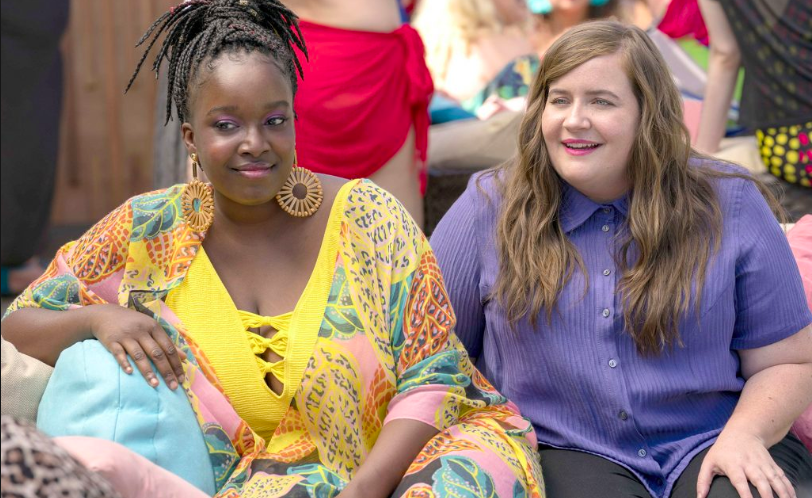Shrill: a Fat Feminist Takeover
Hulu’s Shrill portrays fat-positivity in new show Shrill
One season with six episodes was NOT enough.
Many a day I open Netflix hoping for a TV show that I can see myself in, yet many a day I see thirty-year-old straight sized women playing teenagers. There is absolutely nothing wrong with being straight sized, the issue comes when fat women aren’t represented. Shrill perfectly represents the struggles of being a fat woman in our society.
The average size of women is between a 16 and an 18 (Nunes, 2019), but plus-size women only make up 1-2% of media (Miller, 2016). Go figure.
Media now is powerful, it has the ability to make you buy products you don’t need, feel bad about yourself, spread awareness, and most of all, it can make you love yourself. I usually watch Legally Blonde before finals simply because of how kick-butt Elle Woods is.
Seeing a powerful woman makes you want to be a powerful woman. Seeing a powerful fat woman makes you want to be a powerful fat woman.
Unfortunately, you don’t see many fat characters, which is why I embarked on a hunt for fat-positivity. Shrill has to have been one of my favorites.
Aidy Bryant from SNL portrays a fat journalist in today’s society. From the first episode a lot of fatphobia happens, which isn’t unrealistic but a bit surprising because it was very dense, the most likely explanation was that they were setting the stage to explain discrimination that actually happens.
From family pushing diets and exercise, to love interests that shove you out the back door (literally), Shrill’s portrayal of fat-shaming is spot on. I didn’t think it is possible for me to relate to anything so much.
The show opens with Aidy Bryant’s character, Annie, taking a package of diet pancakes out of her fridge and eating them despite gaging the entire time, later on, we learn that Annie’s mom had purchased the diet foods, similar to a weight watchers package, to try and “get them in health”.
To pair with the diet, Annie’s mom and herself go out on a walk where Vera makes a comment about Annie that causes her to sputter but forgive her mom because she had good intentions.
Annie’s boss ignores her work and fat-shames her throughout the whole story, not to mention the ignorant troll commenting on Annie’s articles with lines such as “pig” and other obscenities not best on a High School newspaper, or anywhere else for that matter.
Finally, she hits her peak with anger and writes a story on the fat-shaming, including the diets, dates, and derogatory comments.
The empowerment throughout the show is truly astronomical, the “fat babe” pool party that she goes to teaches her to be confident, at one point she sees another plus-sized woman walk down the street, we got to watch as Annie’s eyes filled with adoration, when she had to face discriminations she channeled that energy, ignored it, and bought herself flowers, flowers!
The fat-positivity isn’t the only thing that’s empowering here. The LGBTQ+ inclusion is amazing. It wasn’t advertised, or used as a hook for more profit, as the queer characters, such as Annie’s roommate, depict real people.
Although Annie’s boss, a gay man, shows ignorance and fat-shaming, it’s almost used as another viewpoint in which Annie asks why he would show such discrimination towards her when he faced so much himself. Discrimination is something that does happen in the LGBTQ+ community and fat community in different ways.
On the upside, Annie’s roommate, Fran, is one character I absolutely wish could have a spinoff. Fran is a gay, black, fat, woman who shows nothing but support and love for Annie. We need more characters like her in the world.
I cannot wait until 2020 when season two is released. Aidy Bryant’s character demonstrates a powerful fat woman: someone I wish society would proudly display more.



